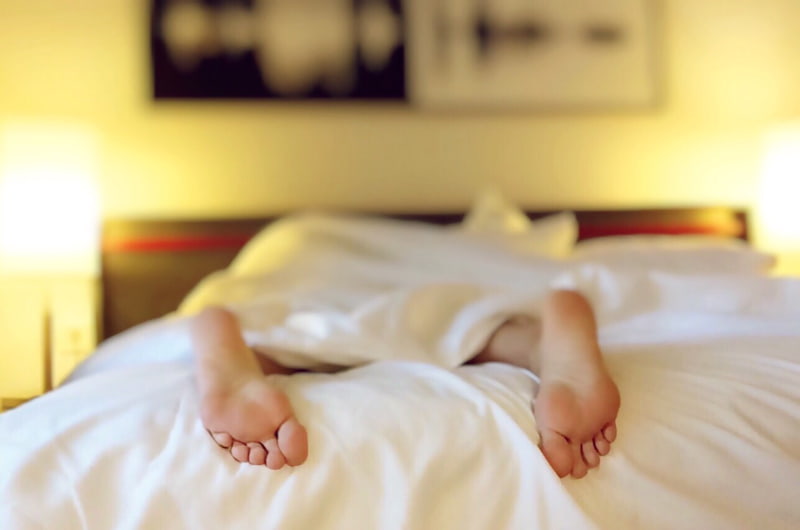We’ve all been there – you’ve had a stressful week and want to hang out with your friends and have a few drinks to take the edge off on a Friday night. Nothing wrong with that. But the temporary positive feeling you get from alcohol use when it first hits you can quickly turn into you feeling more depressed and anxious than ever after some heavy drinking. Why does this happen when you started off feeling so good? What's going on in your brain? What can you do to ease the symptoms so you don’t feel like crap for longer than you have to? Here are 5 mental effects that alcohol has on you and how to ease your symptoms.
1. Alcohol lowers serotonin levels.
The fact that alcohol use lowers serotonin levels is one of the main causes of the increase of stress and anxiety you feel from moderate drinking. Surprisingly, alcohol can initially raise serotonin levels, a substance in your brain that causes you to feel happy which is why you feel that sudden boost of confidence after a drink or two. Your body quickly gets used to this increased level of serotonin, though, and expects your brain to keep producing more. When that initial boost of serotonin goes away and your serotonin supply starts depleting, you start to feel stress and anxiety that much more. Anything that temporarily increases natural levels of serotonin only to have them come crashing down later is certainly something to consider staying away from, especially if you’re experiencing increased stress and anxiety.
2. Alcohol can worsen your short-term memory.
We’re sure you’ve noticed that after excessive consumption, you may have had trouble piecing all the blurry pieces of the night together. This is somewhat more common in heavy drinkers though there is a risk even during moderate drinking. This is because alcohol affects the limbic system which controls emotions and memory. When alcohol is overconsumed, it affects your brain’s ability to move information from short term memory to long term memory. If these memories never make it into your permanent storage system, you’re going to forget them soon after they happen.
3. Hangovers can trigger anxiety attacks.
If you deal with anxiety, you may have gotten through the night perfectly fine without anything drastic happening to your mood but the symptoms you’re experiencing as a result of your hangover may spark some very unwanted feelings of anxiety and depression or even prompt an anxiety attack. The feelings of shakiness, sweating, and heart palpitations that occur the morning after you drink alcohol can be quite similar to how you feel when you have an anxiety or a panic attack and can trigger those feelings to actually come on. Both dehydration and lack of serotonin are also culprits when it comes to making anxiety worse and both are experienced with a hangover.
4. Alcohol can mess with your sleep pattern.

Ever had a night of heavy drinking and went soundly off to sleep only to wake up wide awake a few hours later? I think that’s more of a theoretical question because, for most drinkers, the answer is yes. When you drink alcohol right before going to sleep, it interferes with your body’s sleep-regulating mechanism, also known as homeostasis. When your sleep pattern is disturbed, sleep quality becomes poor which results in both mental and physical symptoms. If you already deal with feelings of anxiety, alcohol use will only exacerbate them and can make dealing with day to day life difficult.
5. Alcohol can lower your concentration.
Just like alcohol use can affect your short term memory, it can lower your concentration and problem-solving skills for the same reasons. Not only does alcohol affect your limbic system, which is responsible for both lack of concentration and your short term memory, but the dehydration your body experiences due to the consumption of alcohol also contributes to your inability to concentrate. This could even last longer than your initial hangover period.
Treatment for your symptoms
There are definitely ways to ease or minimize the physical symptoms as well as the effects that alcohol use has on your mental state before, during, and after drinking. Some of these ways include:
- Staying hydrated – Stay hydrated as much as possible before, during, and after alcohol use. While drinking, try having one glass of water for each alcoholic beverage that you consume. If not, stay hydrated as much as you can before and after heavy drinking certainly helps ease your mental and physical symptoms, keeping them to a minimum.
- Consider a supplement – Our RaveAid supplements can be consumed as early as two days before an event, during the event, or up to two days after an event for heavy drinkers who know they're going to be partying a little too hard. Our supplements increase serotonin production to make up for any serotonin lost, antioxidants to encourage a fast recovery, and vitamins and minerals to help get your body back on track.
- Don’t forget to eat – Drinking on an empty stomach is a definite no-no. Make sure you’re putting food in your body both before and after you drink, if not during. Drinking can actually lower your blood sugar levels, causing fatigue, headaches, and dizziness as well as other physical symptoms so loading up on carbs may not be the worst idea for once.
- Stick to lighter drinks, and avoid dark beverages – Darker liquors such as whiskey, rum, red wine, and tequila actually contain congeners, which are chemically related compounds. This includes methanol, which can risk a worse hangover than just ethanol.

